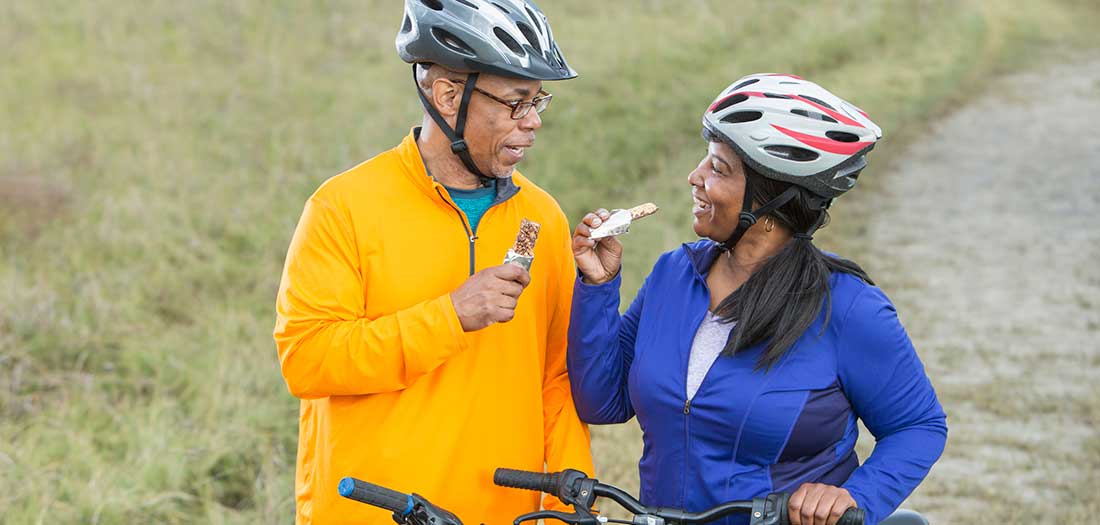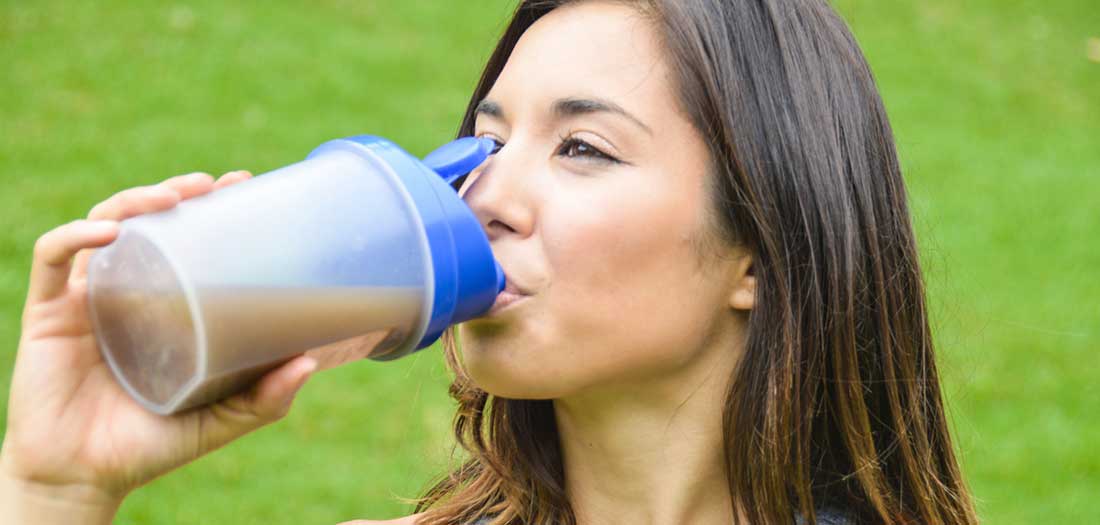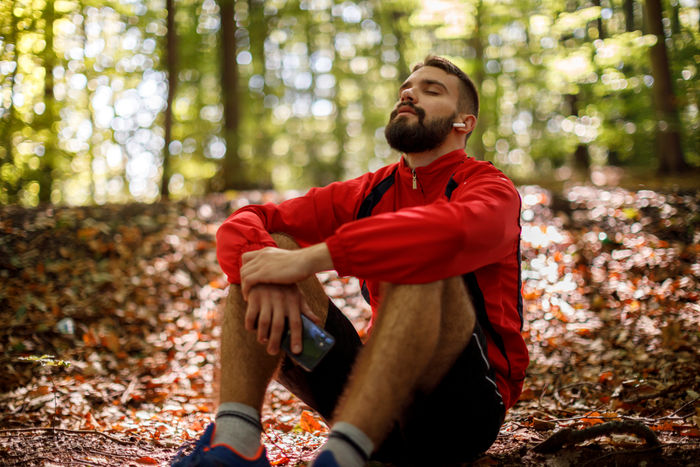Delivering the optimal amount of nutrients to your body at the right time can play a major role in performance and recovery. Although the largest concern for most workouts lasting less than 90 minutes is fluid replenishment, small pre- and post-workout snacks you can easily throw into a gym bag may help prepare your body for exercise and enhance your overall performance and recovery.
One of the most critical times to pay attention to your nutritional needs is prior to a workout. Inappropriate fuel for your exercise routine can result in the breakdown of muscle tissue and may even make you more prone to injury. This is especially true if you exercise in the morning, when blood sugar levels are typically at their lowest. Prior to a workout, consuming carbohydrates to top off your muscle energy stores (glycogen) combined with smaller amounts of protein to help protect muscle and reduce post-exercise muscle soreness is the primary goal. Keep these snacks lower in fat and fiber to help avoid common digestive problems such as cramping and nausea.

Pre-Exercise Portable Snacks |
|
|
Apple + String Cheese |
Light Yogurt |
|
Banana + Almonds |
Non-fat Milk + Granola Bar |
|
Dried Fruit + Nut Mix |
Whole-wheat Crackers + Peanut Butter |
Following a workout, the body needs appropriate fuel to help muscles rebuild and repair. Appropriately timed snacks after exercise will also increase energy to get you through the day. Nutritional goals are similar to pre-exercise needs in terms of carbohydrate replenishment, but these snacks may be a bit higher in protein to aid muscle recovery.
Post-Exercise Portable Snacks |
|
|
One-half Roast Beef Sandwich |
Lean Deli Ham + Grapes |
|
Hard-boiled Egg + Wheat Crackers |
Small Turkey Wrap |
|
Protein Smoothie |
Beef Jerky + Orange Slices |
 Proteins are comprised of various amino-acid groups. One in particular, known as L-Carnitine, is cited in research data as a targeted intervention to address the actual mechanical damage within muscle tissue following a workout. Keep in mind that although sports nutrition may have generalized goals, ideal nutritional intake should be personalized. Tracking your workout intensity, snacks and energy level will give you a better idea of the right balance for your individual needs.
Proteins are comprised of various amino-acid groups. One in particular, known as L-Carnitine, is cited in research data as a targeted intervention to address the actual mechanical damage within muscle tissue following a workout. Keep in mind that although sports nutrition may have generalized goals, ideal nutritional intake should be personalized. Tracking your workout intensity, snacks and energy level will give you a better idea of the right balance for your individual needs.
Beyond Gym Bag Snacks
In addition to the right foods, proper hydration is critical. Although individual fluid requirements vary, it’s best to stay well hydrated before, during and after workouts by adhering to the following guidelines:
- 17 -20 ounces of water two hours prior to exercise
- 7-10 ounces of fluid every 10-20 minutes during exercise
- 16 -24 ounces of fluid for every pound of body weight lost after exercise
As the intensity and duration of your workouts increase, so does your need to replenish electrolytes lost through sweat. Therefore, you may want to consider utilizing a thirst-quenching sports drink for a portion of your fluid replenishment for super-intense workouts or those lasting longer than 60 minutes. In addition to replenishing fluids, this practice will help keep your body functioning at peak performance and contribute to the overall success of your workout efforts.
Ensuring your body has the optimal nutrients at the right time may help to enhance workouts and minimize recovery time. And although there are standard nutritional goals, individual tolerance and digestive issues around workout times can vary. Experiment a bit to see what helps you feel and perform your best.
 by
by 









